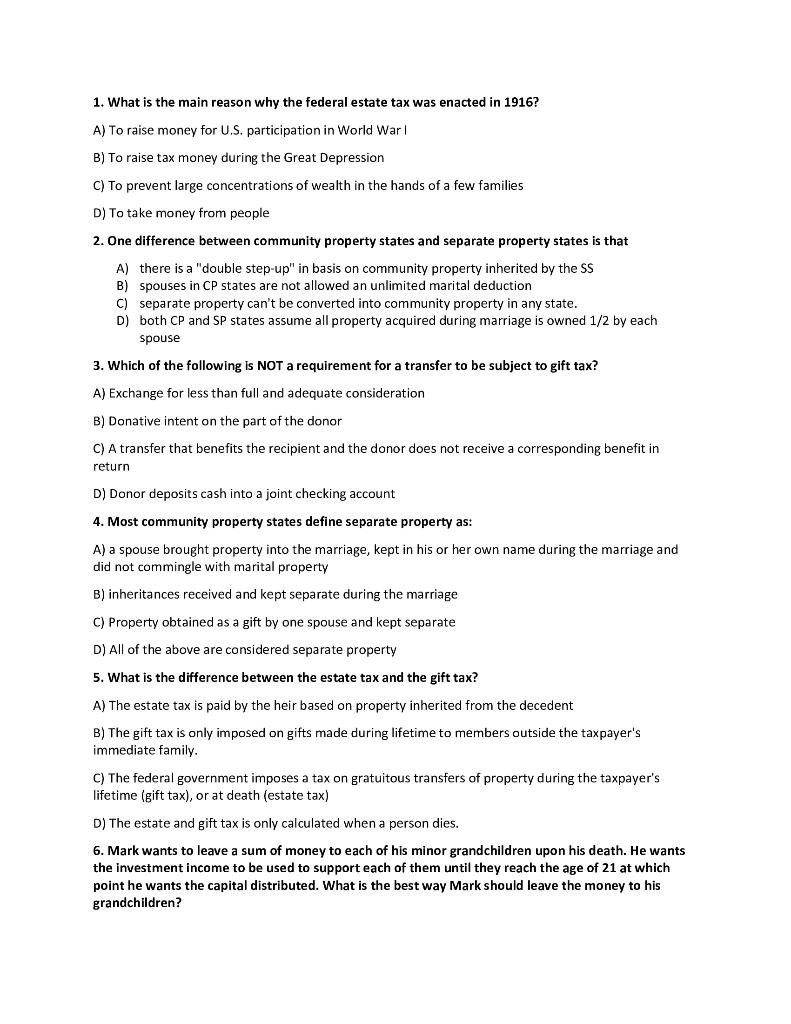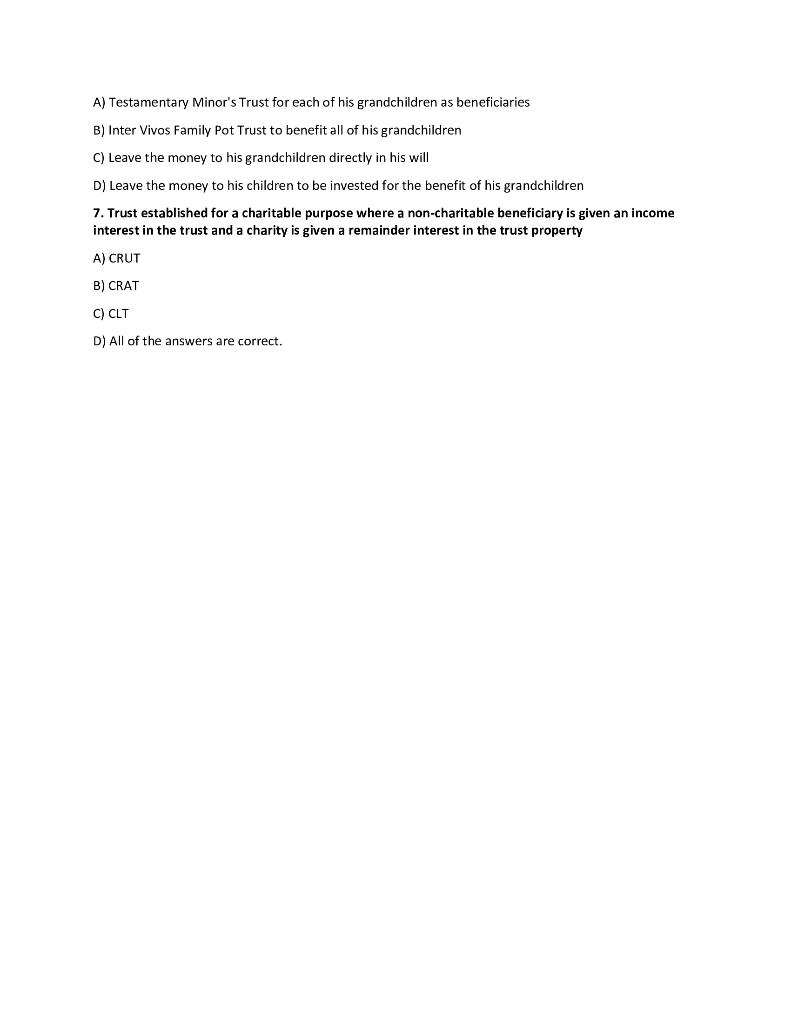

1. What is the main reason why the federal estate tax was enacted in 1916? A) To raise money for U.S. participation in World War I B) To raise tax money during the Great Depression C) To prevent large concentrations of wealth in the hands of a few families D) To take money from people 2. One difference between community property states and separate property states is that A) there is a "double step-up" in basis on community property inherited by the SS B) spouses in CP states are not allowed an unlimited marital deduction C) separate property can't be converted into community property in any state. D) both CP and SP states assume all property acquired during marriage is owned 1/2 by each spouse 3. Which of the following is NOT a requirement for a transfer to be subject to gift tax? A) Exchange for less than full and adequate consideration B) Donative intent on the part of the donor C) A transfer that benefits the recipient and the donor does not receive a corresponding benefit in return D) Donor deposits cash into a joint checking account 4. Most community property states define separate property as: A) a spouse brought property into the marriage, kept in his or her own name during the marriage and did not commingle with marital property B) inheritances received and kept separate during the marriage C) Property obtained as a gift by one spouse and kept separate D) All of the above are considered separate property 5. What is the difference between the estate tax and the gift tax? A) The estate tax is paid by the heir based on property inherited from the decedent B) The gift tax is only imposed on gifts made during lifetime to members outside the taxpayer's immediate family. C) The federal government imposes a tax on gratuitous transfers of property during the taxpayer's lifetime (gift tax), or at death (estate tax) D) The estate and gift tax is only calculated when a person dies. 6. Mark wants to leave a sum of money to each of his minor grandchildren upon his death. He wants the investment income to be used to support each of them until they reach the age of 21 at which point he wants the capital distributed. What is the best way Mark should leave the money to his grandchildren? A) Testamentary Minor's Trust for each of his grandchildren as beneficiaries B) Inter Vivos Family Pot Trust to benefit all of his grandchildren C) Leave the money to his grandchildren directly in his will D) Leave the money to his children to be invested for the benefit of his grandchildren 7. Trust established for a charitable purpose where a non-charitable beneficiary is given an income interest in the trust and a charity is given a remainder interest in the trust property A) CRUT B) CRAT C) CLT D) All of the answers are correct








